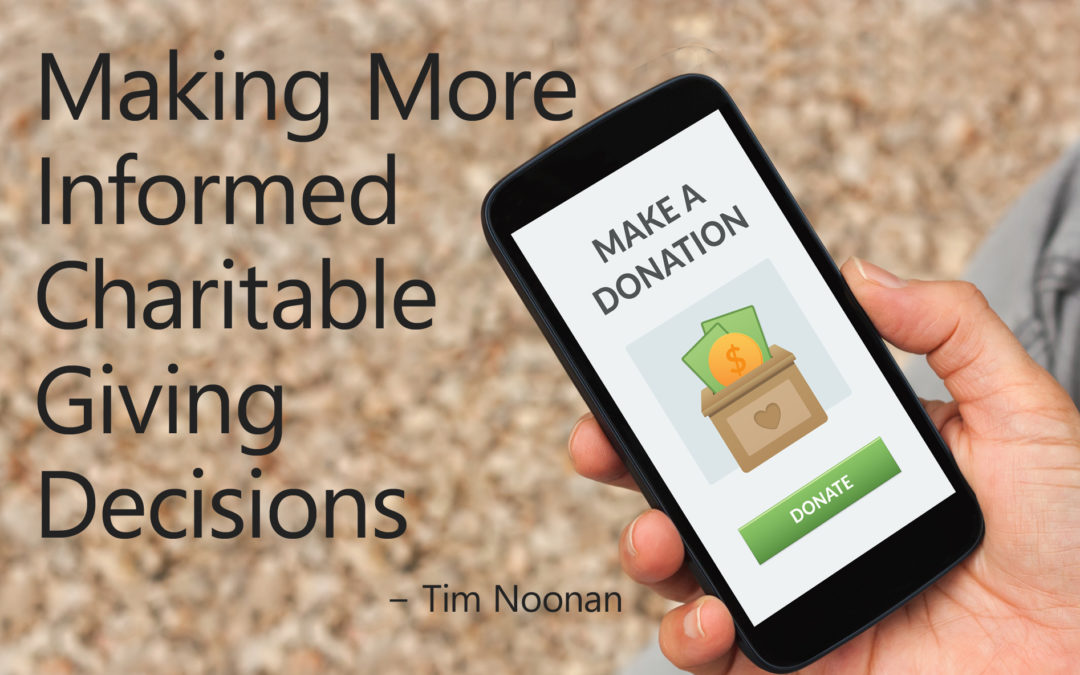When it comes to giving, it’s often difficult to make the right choices with so many worthy causes, charities, and organizations. In addition, not all organizations are experienced and transparent in managing funds. The following are several ways to make better decisions when giving to charity.
Choose Where You Want to Make a Difference
Everyone has an issue that concerns him or her the most, whether it’s child abuse, civil rights, substance abuse, aging, or literacy education. Few people donate money to a charity without a good reason. The first step is to determine what matters the most to you and what your support should accomplish. Not taking this step means giving money without intention and direction.
Decide How You Want to Make a Difference
The next step is to create a giving plan that optimizes your resources, financial, or otherwise. The plan could be to donate a specific amount to charity every year or every month. In addition to donating money, there are other proactive ways to consider like volunteering, blogging, or public speaking, as well as offering in-kind services, which can be more effective than cash donations. You may be able to grow your influence and tap into your network of contacts that can join you in supporting a particular cause or organization, augmenting the impact of your involvement. The key is to assess your resources and come up with a plan that is feasible.
Research the Organization
One of the most important steps is to exercise due diligence and research the organization to root out scammers and underperformers. Get to know the charity well, including the number of years the organization has been operating, its management and governance, financial well-being, reputation, and impact. Reviewing the organization’s annual report or Form 990 can serve as a guide to the organization’s operations and programs. Examine a charity’s reputation by looking through its social media for positive testimonials or service complaints by clients and employees. Assess how well the organization’s programs and services are aligned with its mission, even quantitative factors like the number of lives improved per dollar spent. No one should assume that every organization has the same good intentions. If something doesn’t seem right, trust your instinct.
Focus Your Giving
People often make the mistake of giving their money to every charity that interests them. However, they can make a more meaningful difference by giving larger gifts to only a few organizations rather than giving smaller amounts to multiple organizations. Particularly if you have limited funds, this can have more impact on one favorite charity.
Whether corporate or personal giving, making informed decisions starts with knowing your business and personal values, being clear about why you’re giving, assessing your resources, identifying the ways you can make the most impact, and doing as much research as possible.
In this way, giving becomes not just easier, but more rewarding because it is done with intention and due diligence.
